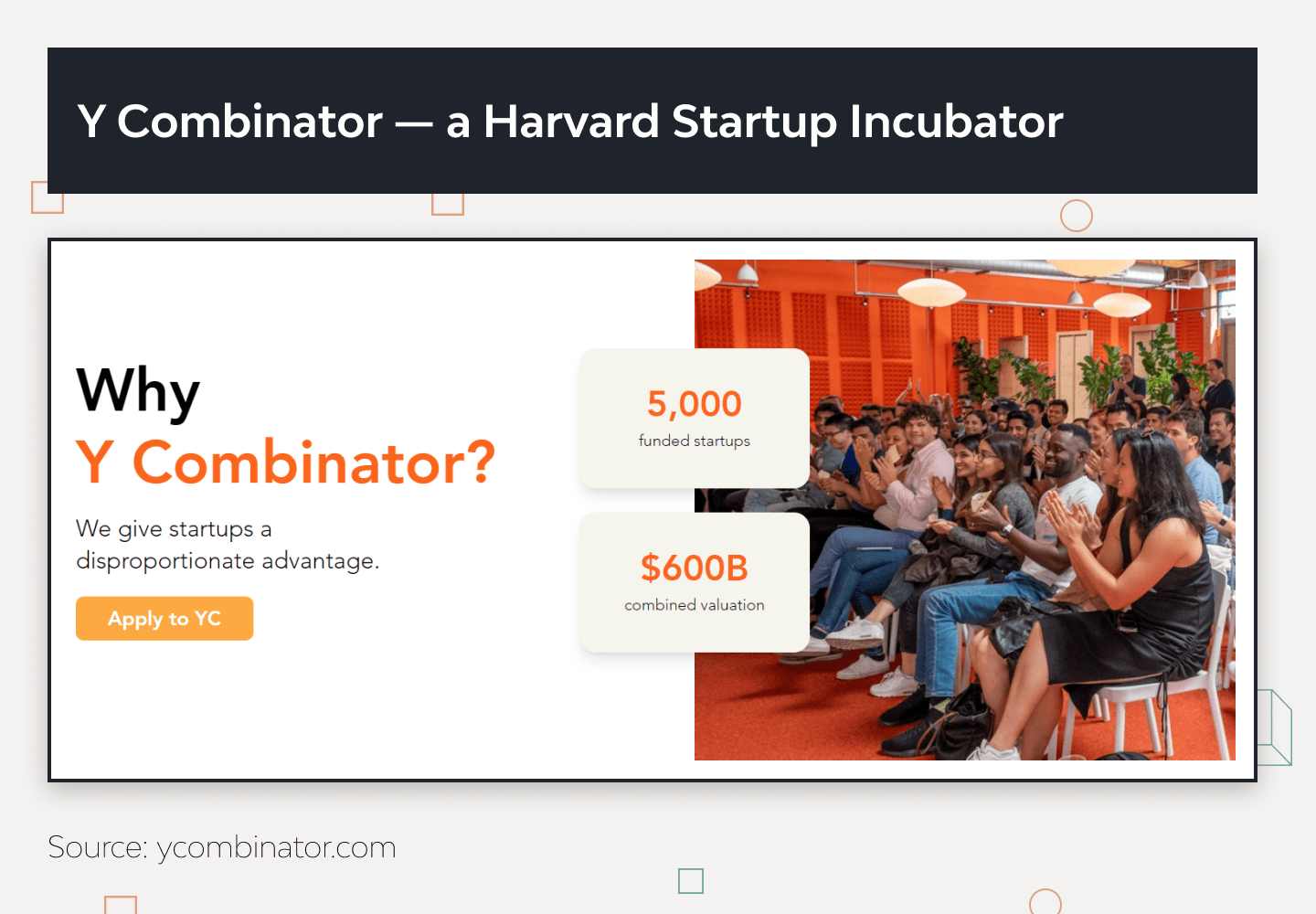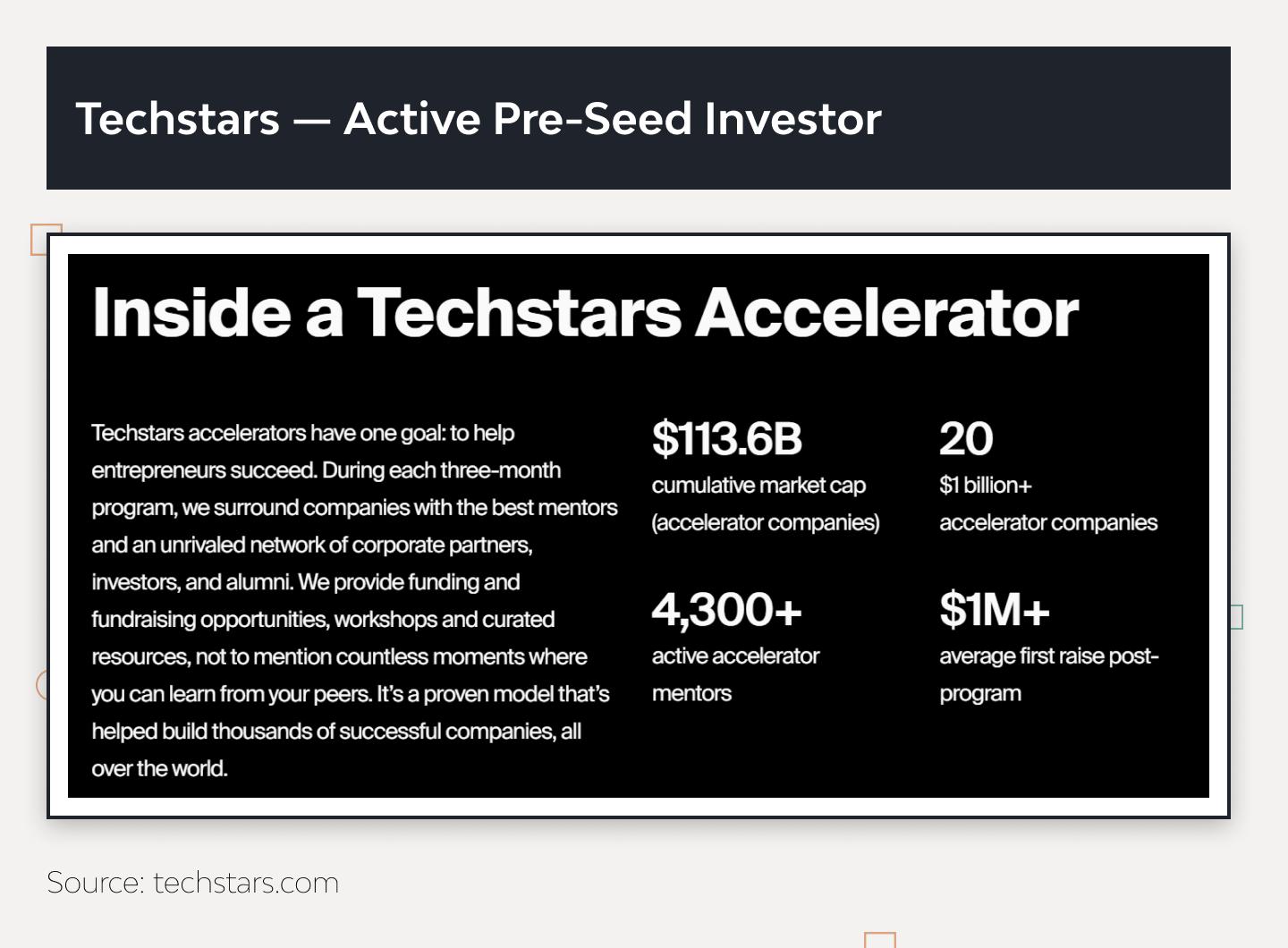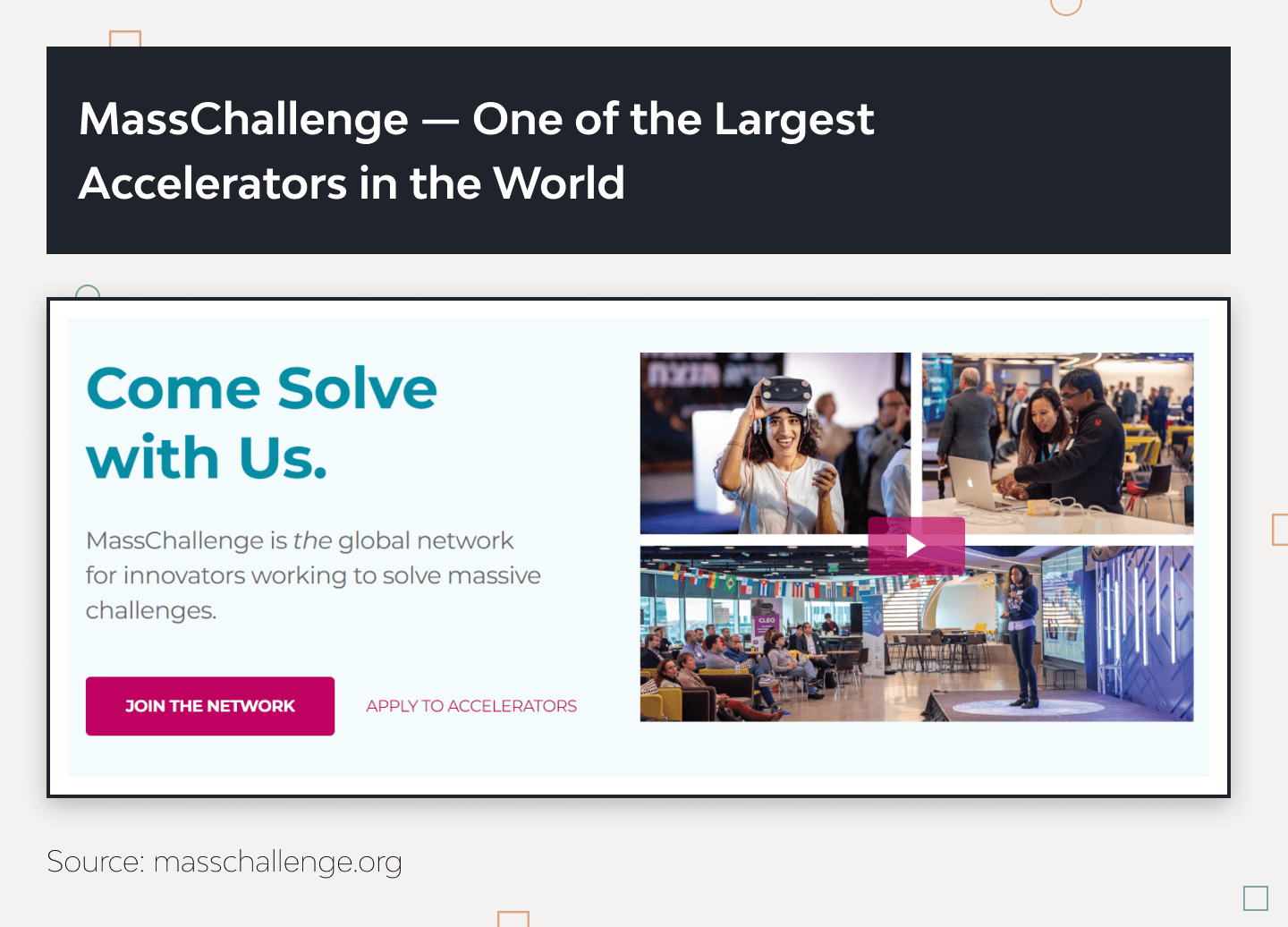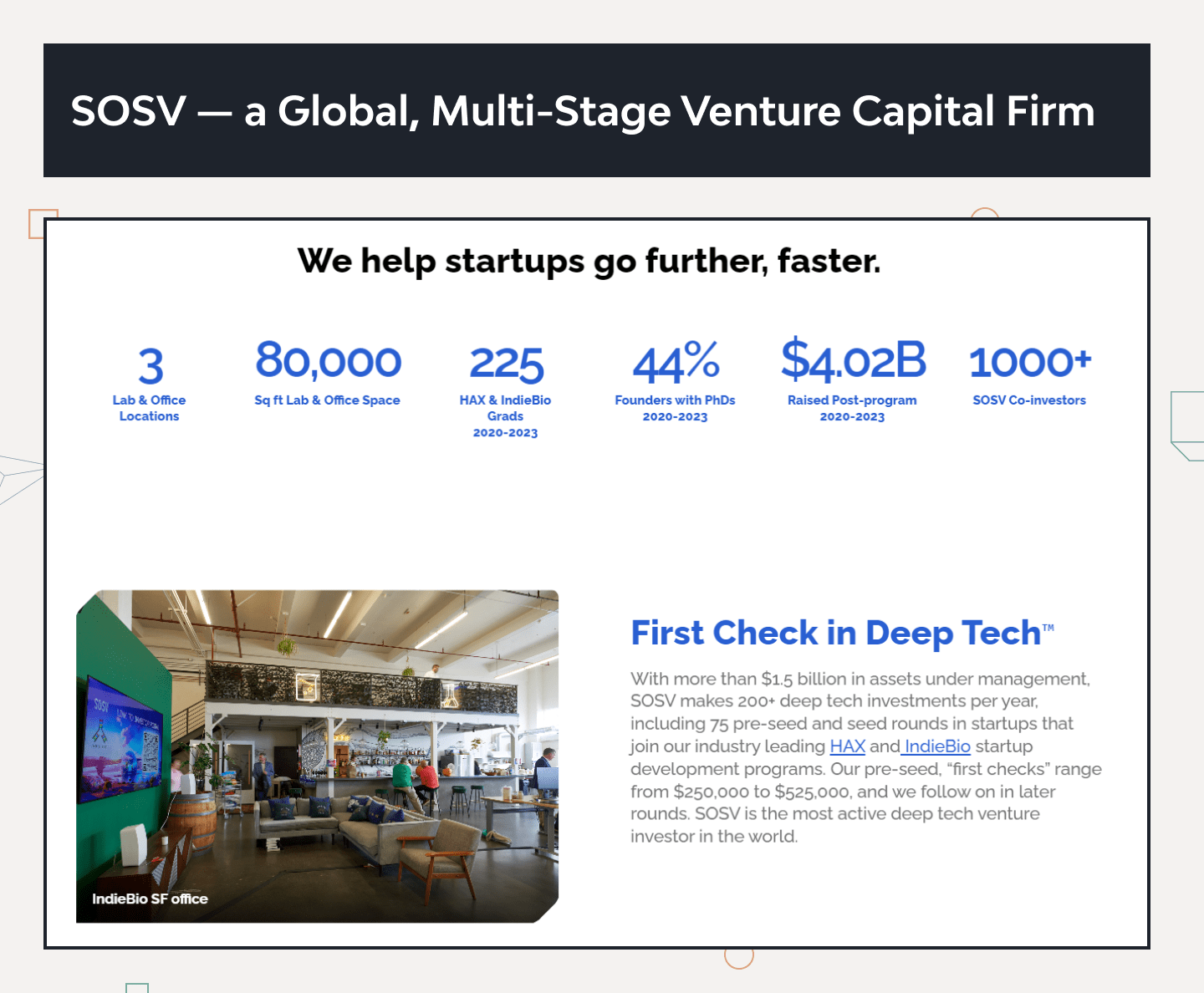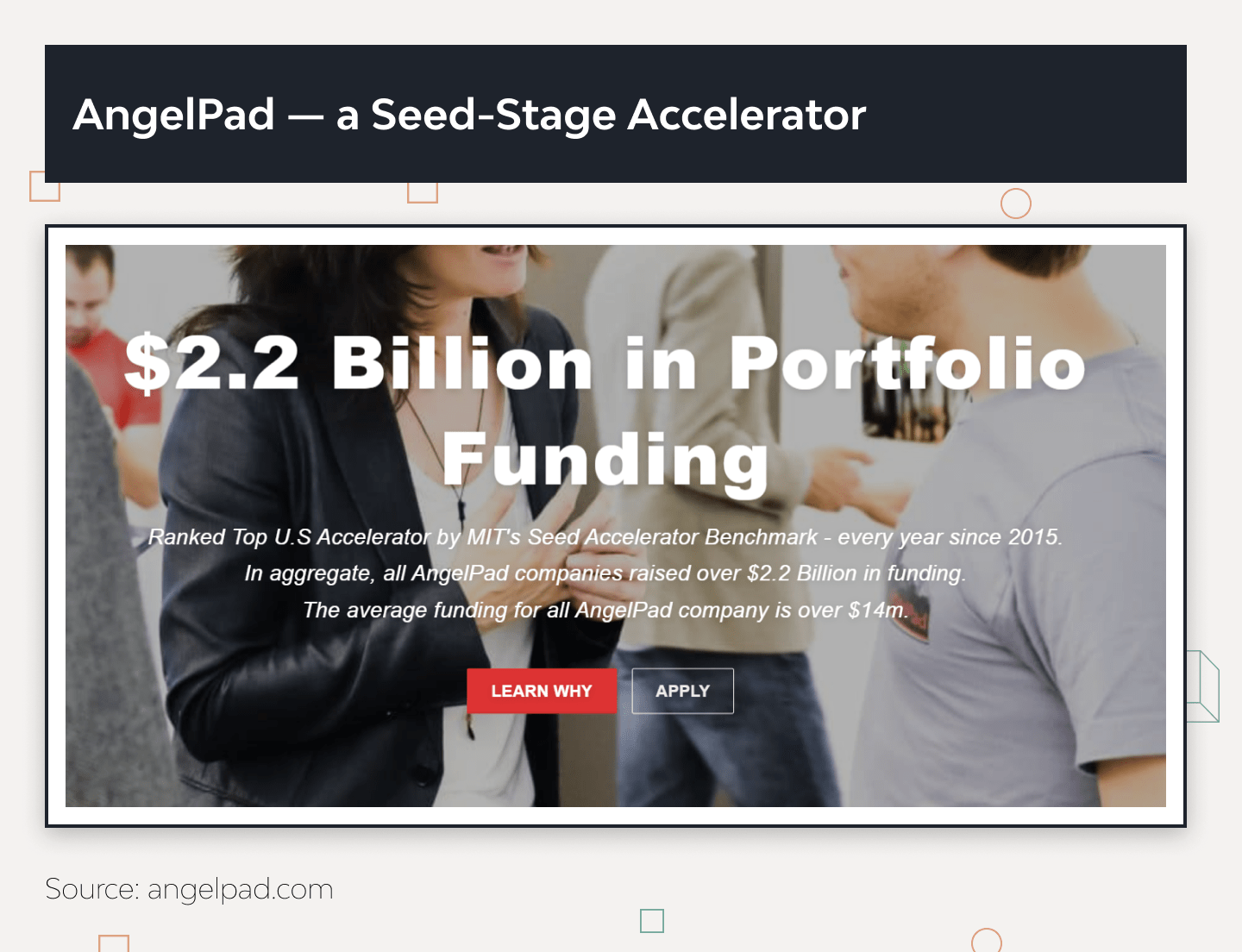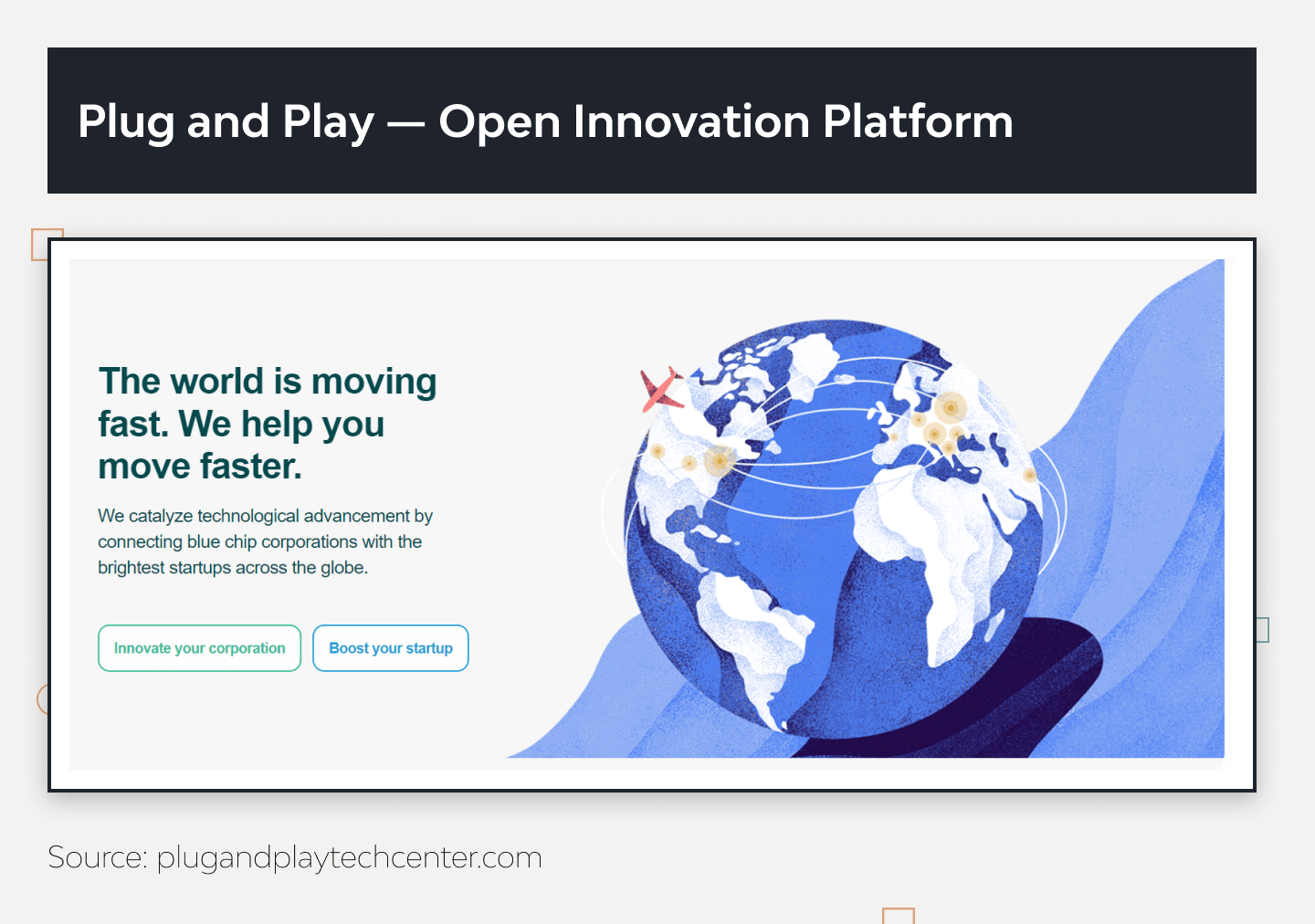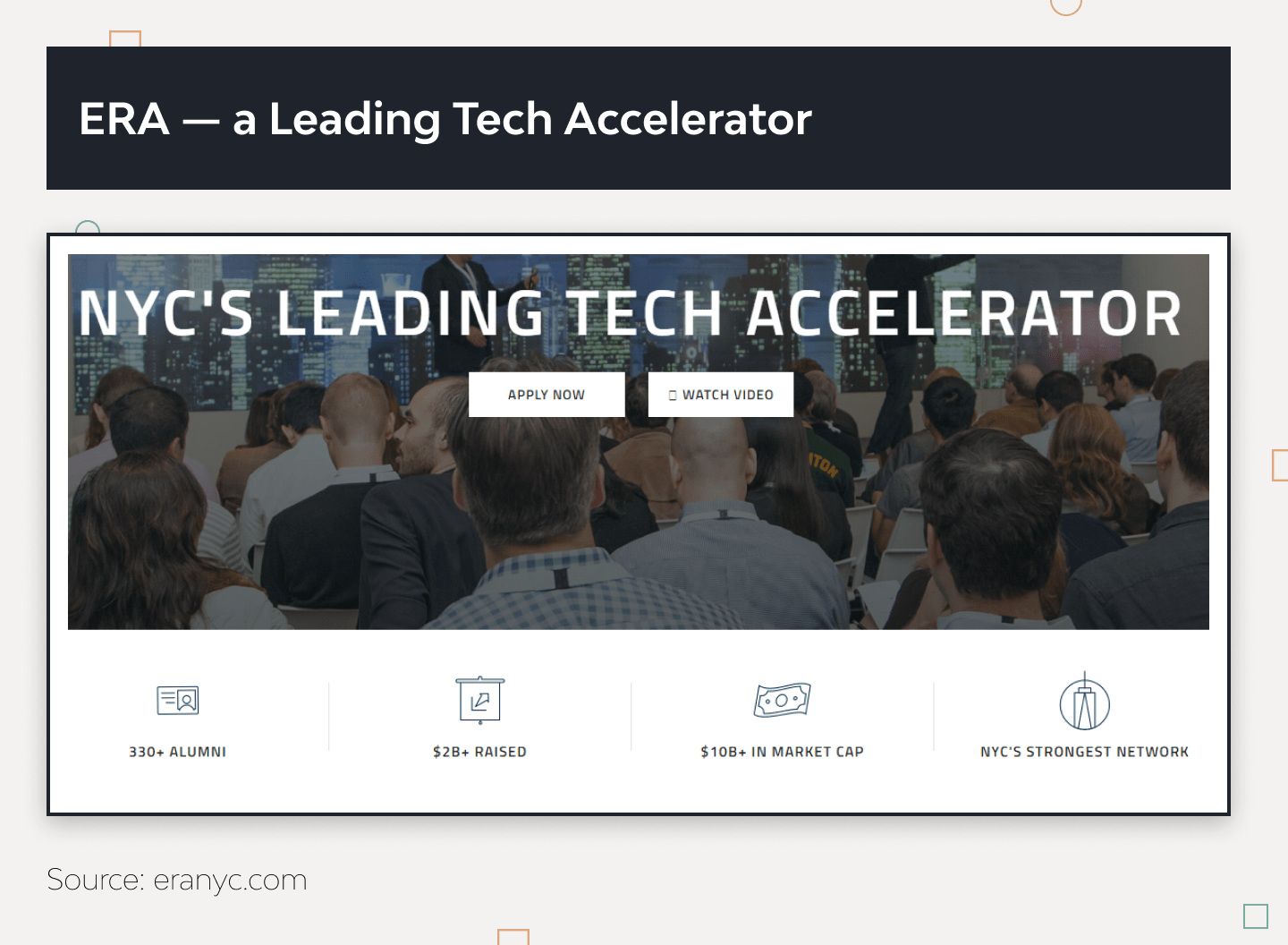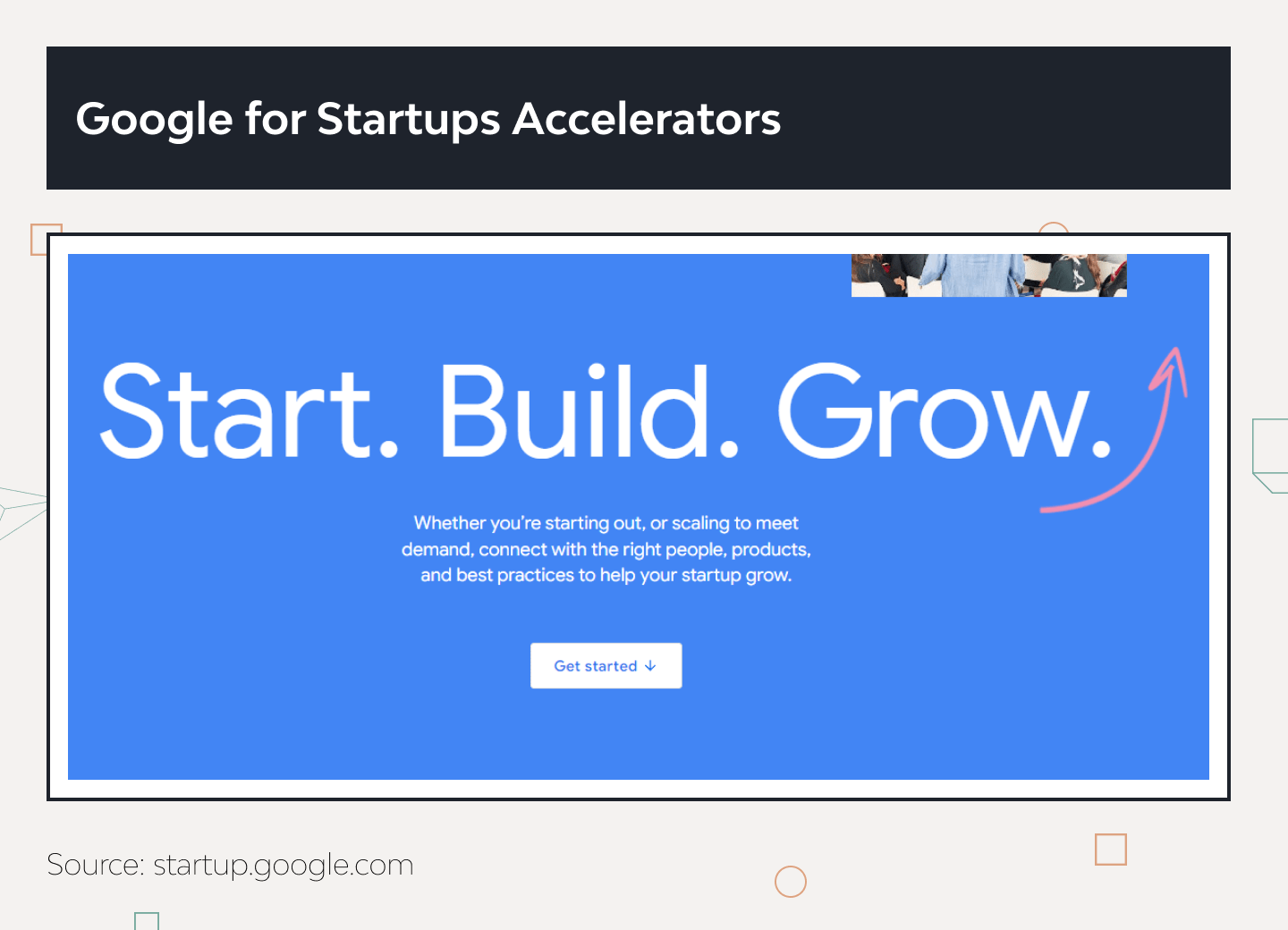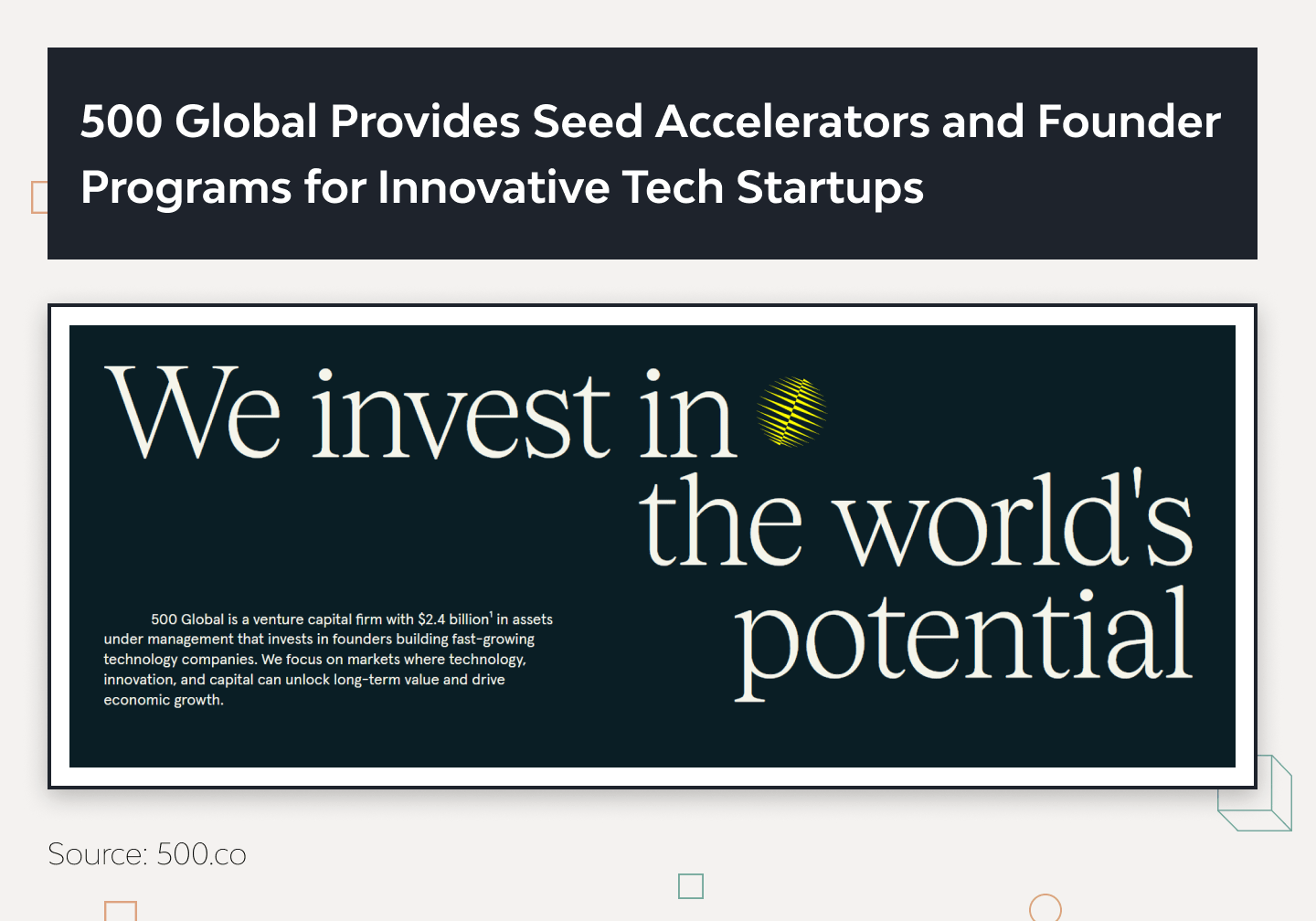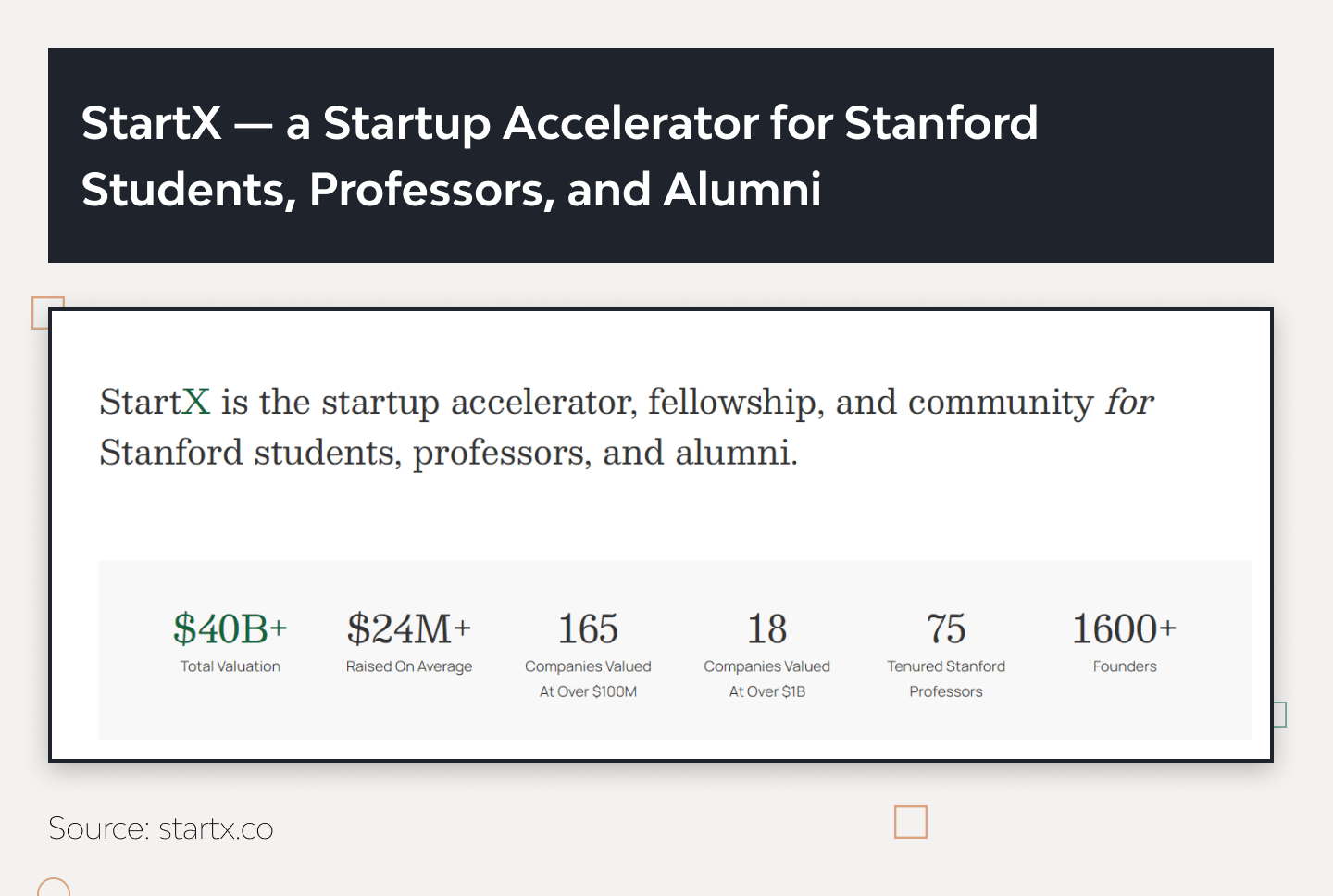Top 10 Startup Incubators in the USA: 2024 Edition

As a startup founder, you have a lot under your belt: doing market research, finding your first customers, getting traction, pivoting, raising funds – this list can be endless.
Startup incubators Switzerland offers entrepreneurs a turning point in their company’s lifecycle, helping them overcome many of the challenges mentioned earlier.
But how do you make the right choice and enter an accelerator that will really help you meet your business goals? Only with a thorough prior research.
Well, we have made this job easier for you and cherry-picked the top accelerators in the USA based on the following criteria: top alumni, accelerator program and benefits you get, networking and mentorship opportunities, and chances to get funding for a startup project.
And that’s not all. In this article, you’ll also learn:
- How to choose between an incubator and an accelerator
- How to prepare for the application process and interview
- What common mistakes to avoid
Our advice is based on the extensive experience our team has with startups, as demonstrated in our portfolio. For more than 16 years, Django Stars has been delivering software development services for startups to sectors including fintech, booking, edtech, and e-commerce. We provide technical consulting, in-depth discovery phases, MVP development, scaling, and maintenance to promote long-term business development.
Let’s begin.
List of the 10 Best Accelerators and Incubators in the USA
Before you drill down into top startup accelerators in the USA, we recommend sifting out those that don’t suit your needs based on the following criteria:
- Equity it takes
- Funding
- Industries it serves
- Program duration
| Name | Equity | Funding | Industry | Program duration |
|---|---|---|---|---|
| Y Combinator | 7% | 125K USD | All | 3 months |
| Tech Stars | 7-10% | 118 K USD | All | 3 months |
| MassChallenge | 0% | Only cash awards | All | 4 months |
| SOSV | Around 11% | from 150K USD to 500K USD | Climate and Health | From 6 months |
| AngelPad | 0% | 120K USD | All | 3 months |
| Plug and Play | 0% | From 25K USD to 500K USD | All | 3 months |
| ERA | 6% | 150K USD | Software-related | 3 months |
| Google for startups | 0% | Only cash awards | All | 3 months |
| 500 global | 6% | 150K USD | All | From 3 months |
| Start X | 0% | Only financial support | All | 6 months |
Now that you know what to expect, let’s review each of the accelerators in more detail.
Y Combinator
Y Combinator is the most hunted accelerator in the USA, also known as Harvard’s startup incubator. If you want to apply to Y Combinator, get ready for harsh competition, as its acceptance rate is just 1.5 to 3%.
But don’t put your hands down in advance, you don’t need to have a detailed business model or customers already pouring money into your business.
In fact, 42% of YC’s billion-dollar companies applied with only an idea, and 54%of YC’s billion-dollar companies had no revenue when they applied. In fact, you need to prove that you are creating something people really want.
Here are the main benefits you get with Y Combinator.
- YC invests $125,000 and takes 7% equity in every startup it accepts. This is considered fair equity compared to most VC deals or angel investments.
- As a founder, you’ll be assigned a dedicated mentor who worked with hundreds of YC companies
- You’ll get access to a carefully selected YC Investor Database, where you’ll present your pitch deck
- Extensive documentation on everything you need to know about fundraising, go-to-market, sales, product-market fit, mental health, hiring, etc.
- You’ll become a member of a private social network for founders only—a hub where you can ask any questions, connect with the people you need, and receive support from like-minded entrepreneurs.
What to consider before applying
- Don’t expect it to be a school with lectures and theory. YC is all about practice. As YC alumni Dave Rogenmoser said: “During YC, if you’re considering doing anything during the 3 months – ask yourself: “Is this writing code? Is this talking to users? Is this exercise?” if it’s none of the above, you probably shouldn’t be doing it.”
- Don’t expect that you’ll love everything they tell about your idea: get ready for bitter truth and hard work. However, this is necessary when participating in almost any of the best startup incubators in USA.
TechStars
Techstars is the world’s most active pre-seed investor, with a portfolio of over 4,000 early-age startups. It invests $118,000 for 7-10% equity and includes a 90-day mentorship-driven program and personal mentorship opportunities. It has a structured schedule, with each month dedicated to a certain topic:
Month 1 – Customer development
Month 2 – Product development and gaining traction
Month 3 – Refining your pitches & preparing for Demo Day
Here is a great article by TechStars that describes activities in each of the three months.
The main benefits of TechStars include:
- Personal mentorship
- Lifetime access to the Techstars worldwide network of experts, investors, and entrepreneurs.
- Access to over $400k of cash equivalent hosting, accounting, and legal support—plus other perks worth more than $5M
- In comparison with YC, TechStars has a very structured program packed with everyday classes, seminars, and workshops
What to consider before applying
- As a TechStars alumni shares, get ready for the intense pace, especially at the beginning. So be ready to tell your friends, family, and dog that you won’t exist for that period (no jokes here).
- Don’t expect that your fundraising work will be done by getting into TechStars. You’ll get knowledge on how to run a fundraising process, how to pitch your idea, and where to find angels and VCs. But it’s just the beginning of the hard work.
MassChallenge
MassChallenge is one of the largest accelerators in the world, with over 4500 startups and $9B+ in funding. It takes no equity and suits best for early-stage companies in the ideation or early market engagement stage. Its main benefits as a major business incubator are:
- Hybrid format that combines in-person sessions, offline and online events
- Specialized industry tracks for such sectors as Climate, Dual Use, FinTech, and HealthTech
- You’ll collaborate with a dedicated lead mentor who will help you define your goals, track progress, and get the most out of the program
- You’ll be introduced to global corporate partners, such as IBM, BAE Systems, Carta, Fundify, and First Republic Bank
What to consider before applying
- It doesn’t offer investment or funding upfront. However, you can apply to compete for cash award prizes at the annual awards ceremony
- Founders should apply if they’re ready for early traction and scale
- Although all industries can apply, their US network is strongest in Health, Dual Use, Climate, and FinTech industries
SOSV
SOSV is a global, multi-stage venture capital firm that runs two accelerator programs for startups: HAX (hard tech, healthcare, and sensors) and IndieBio (human, planetary health industry). Positioning itself as one of the key incubator companies, it invests from 150K USD to 500K USD starting from the pre-seed round and takes around 11% equity. Its main benefits are:
- Access to industry-specific experts and mentors
- Unique learning environment
- Weekly strategy and growth calls with mentors
What to consider before applying
- If you want to apply to IndieBio, your product should solve the intractable or difficult problems that will impact 1B+ members of humanity
- If you want to apply to Hax, your product has to solve problems in 3 areas: business communication, healthcare, and consumer.
- You need to have two co-founders minimum to apply
AngelPad
AngelPad is a seed-stage accelerator program based in NYC and San Francisco that has launched more than 150 companies. They run accelerator programs every 6 months and select only 15 teams to work with. They provide funding of $120,000 for each company and access to more than $300,000 in cloud credits from AWS, Google, and Digital Ocean. Here are their main benefits:
- It does not take equity, and its main focus is on support and education
- Intensive mentorship, educational workshops, and support
- Post-program support, where AngelPad continues to support their alumni with ongoin mentorship, access to the knowledge database, and networking events.
- Their program includes finding product market fit, defining a target market, getting first validation, and raising funds
What to consider before applying
- AngelPad prefers startups that have already made some progress and have track records in user acquisition, revenue growth, or customer feedback.
Plug and Play
Plug and play is more than an accelerator. It’s an open innovation platform. The goal of Plug and Play is to help startups grow and succeed. In 2023, they have accelerated 2,700+ startups with over $12B raised by portfolio companies. Their main benefits are:
- No equity
- If your company fits its portfolio, Plug and Play will invest between $25,000 and $500,000 to become a stakeholder in your future.
- It’s a cross-vertical accelerator that operates 60+ programs every year in verticals such as fintech, insurtech, supply chain, and logistics. So, you have a chance to work cross-vertically and take part in different programs, even if they’re not within your vertical.
What to consider before applying
- The most crucial thing they look for is the quality of your team and the experience of founders in their industry
- You need to ensure that your product is difficult to replicate
- Plug and Play is looking for professional, cleanly designed, and well-rehearsed pitches. If you have a video pitch, it’s even better.
Entrepreneurs Roundtable Accelerator (ERA)
ERA is a leading tech accelerator with 330+ alumni and $2B raised in investor capital. As one of the top incubators in the USA, their program lasts for 4 months and they provide an initial investment of $150K in return for 6%. Also, you get a potential for follow-on funding. Other benefits are:
- You’ll be paired with a dedicated mentor who will help you achieve key milestones
- After the program, you’ll still get support from ERA. They will be actively involved with your company as it grows.
What to consider before applying
- ERA provides SAFE form of investment, where investors have the right to receive stock in a company when it raises an equity round.
- They focus on companies with a significant technology component and a software-related business
- They have a strong preference for technical co-founders
- ERA will only invest in U.S. C Corporations
Google for Startups
Google for Startups Accelerators provides startups with technical, product, and leadership training from Google experts.
Each accelerator includes 10-15 top startups that take part in in-person, group learning, and sprint projects to tackle specific technical challenges. Setting it apart from any other venture incubator, the main benefits of Google for Startups are:
- It’s equity-free
- You’ll get custom mentorship from Google mentors
- You’ll work with technical experts from Google
What to consider before applying
- Google for Startups is tailored for Seed and Series A stage businesses
- The priority is for products with Machine Learning and AI technologies
500 Global
500 Global provides seed accelerators and founder programs for innovative tech startups in different industries such as AI, SaaS, media, marketplaces, etc., establishing it as one of the foremost players in incubators entrepreneurship.
Their programs last for 3 months, and they provide 150K USD in seed investment for a 6% stake. The main benefits include:
- A curriculum focused on marketing, culture, startup accounting, product design, sales, finance, and more
- Different programs based on your needs
What to consider before applying
- You need to pay 37.5K USD to participate in the accelerator
- You can fill out an application all year long
Start X
StartX is a startup accelerator for Stanford students, professors, and alumni. It accepts startups from different industries and provides the following benefits:
- No equity
- Access to resources worth over $1 million
- Tailored mentorship and guidance
- Venture capital with enhanced opportunities for seed funding
What to consider before applying
- Only Stanford alumni, undergraduate students, graduate students, faculty members, post-doctoral scholars, and academic staff members can apply
Why Incubation Programs Are Essential For Early-Stage Entrepreneurs
If you are still hesitating on whether or not to apply to the incubator, here is the list of the main benefits you get as an early-stage entrepreneur.
- You’ll become a member of the entrepreneurial community
US accelerators are all about meeting fellow founders who are in the same stage of their startup journey. There is no other place where you’ll find like-minded people who are going through the same struggles as you do.
- Mentorship programs that will take your startup off the ground
As a first-time entrepreneur, you have a limited budget and little experience in running a company. That’s where mentors enter the game. Just imagine you’ll have a dedicated partner who is always ready to answer your questions and share their experience. This kind of support is crucial in incubators entrepreneurship, where the growth potential of startups is recognized and developed.
- Opportunity to get funding
Top tech incubators and accelerators give an access to a community of investors, where you can present your pitch deck. For many founders wondering how to get investors for a business idea, these programs provide a valuable pathway — connecting them with backers who are already validated by the accelerator and, most importantly, eager to fund new ventures.
Incubators vs. Accelerators: What to Choose on your Startup Stage [Checklist]
In simple words, incubators help startups research the market to generate business ideas. Accelerators, in turn, focus on growing startups with an existing business idea or MVP. Incubators do not invest in startups but give them all the resources they need to develop their ideas. Accelerators, on the other hand, are mainly focused on pitching your MVP to investors and raising funds.
To make things easier, we have prepared a checklist that will help you decide between an incubator and an accelerator and get the most out of your time there.
Define your startup stage and choose a program that suits you best
- Are you in the idea stage? – Choose incubator
- Is your startup in the early stage, and do you already have MVP and a business model? – Choose accelerator
- Do you have a strong founding team? – Choose accelerator
- Are you a solo entrepreneur who wants to find a co-founder – Choose an incubator
- Do you need funding? – Choose accelerator
Define your main goal
Why do you want to join an incubator or accelerator? Do you want to generate a business idea? Do you want to raise funds? Or are you just looking to expand your knowledge and learn as much as possible about building startups?
Coming up with exact goals will help you better track your progress and remember why you joined this program in the first place.
Talk to the founders and startups of incubators/accelerators
Don’t be afraid to reach out directly to the founders who took part in the incubator/accelerator. Ask them about their experience and the track records they’ve managed to achieve.
Also, talk to the representatives of the incubator/accelerator to ensure they’ll match your needs. Here are some of the questions to ask:
- What’s your domain expertise?
- Do you offer any customization opportunities?
- How much time will I spend with mentors, and what kind of access can I expect from them?
- Do your mentors have entrepreneurial experience with actually building a product?
- Do you support startups after they leave the program?
Prepare for the interview
- Nail your elevator pitch to answer 3 questions: What do you do? Who is your target market? Why should they care?
- Prove that your idea is something people want: sign contracts, take pre-orders, create a waitlist, collect emails, and show that there is a market need for your product
- Assign question categories with your co-founder and prove that you’re the team that will not break up
- Prepare your agenda—come up with the main things you want to cover before the interview is over, such as why your product is different, how you are going to scale your business, and your main value proposition.
- Avoid marketing speak and buzzwords. Be yourself and do everything to make everyone in the room feel as excited about your product as you are.
Conclusion
To wrap up, incubator programs for startups are useful, but only if you know why you enter them and how to get the most out of your time there. Before applying to an incubator, make sure to create a list of goals and define the main criteria that matter to you.
If you need a tech partner for your startup, our team is here to support you. If you need a technical consultation, a prototype, or a product design concept for your pitch deck, feel free to contact us. Let’s discuss how to grow your product together!
- What are the requirements to get into a startup accelerator?
- The requirements of each accelerator vary; however, here are the most common requirements:
- You need to have a co-founder
- You need to have a business idea and, preferably, a business plan and strategy
- Some accelerators require a minimum funding threshold
- Are there any drawbacks to being in a startup incubator?
The main drawback is that incubators take equity in exchange for the support and knowledge they provide. That’s why you must weigh all the options and evaluate the benefits of the incubator compared to the share they’ll take from your profit.
Also, incubators usually have very strict timelines and deadlines, that’s why you need to ensure that you’re ready to invest a lot of time and resources.
- What Is the Django Stars experience in startuping?
- Since 2008, Django Stars has been delivering software solutions for startups from different industries. We know how to help businesses take their product to the market within a limited budget and a strict timeline. Here’s what we can help you with:
- Cover your CTO role
- Cover product ownership and project management
- Fast prototype to get ready for a pitch
- Create a product scalability plan

